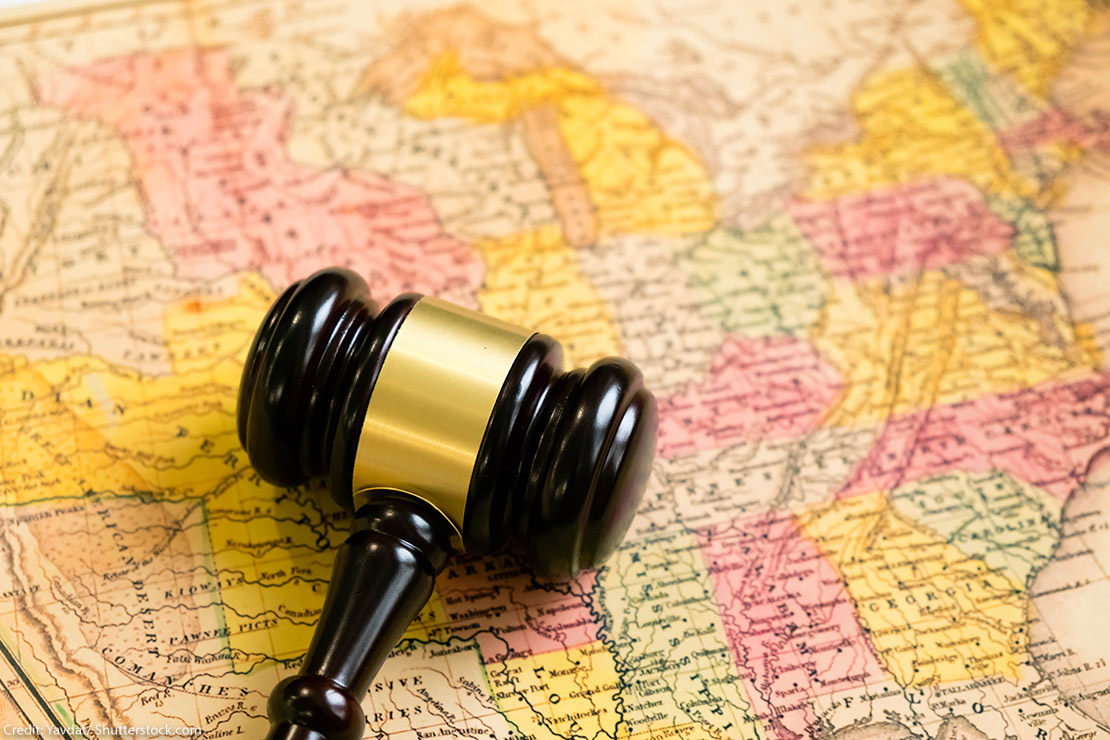Recent decisions from the U.S. Supreme Court are, to use a complex legal term, not great. In many areas, from abortion to voting rights to tribal sovereignty, the current court has curtailed civil rights and individual freedom, even at the expense of longstanding precedent. In other areas, such as policing and qualified immunity, the court has shown that it can move very slowly, or not at all, when it is apparently unbothered by harsh and legally indefensible precedent.
This erosion of our most cherished rights is disturbing, but we are not without hope. The ACLU has long worked in both federal and state courts — and the latter are now more important than ever. To make the most of the opportunities that state constitutional law and state courts present, the ACLU is launching a new State Supreme Court Initiative. This is our first legal program that focuses on a type of court rather than a particular subject matter. We are its first two attorneys, and we’re excited to get started.
While this deeper investment in state-level legal advocacy may be new, the ACLU is no stranger to taking to the states to protect and extend our rights. Each state has its own constitution and its own laws, and state supreme courts can — and often do — interpret those provisions to provide broader protections for civil rights and civil liberties than the U.S. Supreme Court has recognized or preserved under federal law. Last summer, the need to further turn our attention to the states was thrown into sharp relief following the Supreme Court’s egregious decision in Dobbs v. Jackson Women’s Health Organization. Alongside our allies, we showed up in numerous state courts to protect abortion access. In recognizing the need for greater reliance on state courts to protect civil rights and individual liberties, we released “Our New Federalism,” an overview of the ACLU’s extensive experience litigating in state courts nationwide and our reliance on state law to protect people’s rights across many issue areas.
As we build on this work, the State Supreme Court Initiative will do at least three things.
Litigate to Protect Civil Rights and Civil Liberties
First, the initiative intends to identify, litigate, and win cases involving civil rights and civil liberties in state high courts across the country. The ACLU is well situated to go into the states because, in fact, we’re already there. We have affiliates in every state, and they do groundbreaking work that combines expertise in their unique state constitutions with keen insights into local concerns and conditions. The initiative will offer new resources and cross-state expertise to build on these ongoing efforts across the states, all with the goal of establishing greater protections for civil rights and liberties under state law, no matter how much the U.S. Supreme Court might hollow out federal protections.
Foster Collaboration and Information-Sharing
Second, the initiative will foster collaboration and information-sharing among advocates, experts, and communities who are fighting in, or studying, state supreme courts. While the ACLU’s State Supreme Court Initiative may be new, state supreme court advocacy is not: Likewise, many others have been conducting state court advocacy, and groups like the Brennan Center and the State Law Research Initiative are building bodies of research about that vital work. The ACLU hopes to contribute by, among other things, connecting advocates and experts from different states so that their successes and ideas can more easily spread from one state to the next
Expand Transparency and Access to Justice
Third, the initiative aims to address, through litigation and other advocacy, barriers that limit people’s access to justice in state courts. We anticipate, for example, that the initiative will work with advocates around the country to push for greater transparency in state supreme court proceedings, so that people can learn about in advance, and where appropriate participate in, state supreme court cases that could fundamentally affect their freedoms.
All of this work will recognize that the most significant casualties of the U.S. Supreme Court’s jurisprudence aren’t precedents; they’re people. People deserve protection from improper assaults on their liberty. From laws that undermine their right to vote. Or their bodily autonomy. Or their freedom. Yet the U.S. Supreme Court isn’t providing that protection, with disastrous consequences. People are less safe, and less free, because of the court’s decisions. The work of our initiative cannot change the fact that the U.S. Supreme Court still wields enormous, and often harmful, power over the country. But as former Supreme Court Justice William Brennan, Jr., put it, “state courts no less than federal are and ought to be the guardians of our liberties.” The ACLU agrees.
For more information or to let us know about a pending case, contact [email protected].


